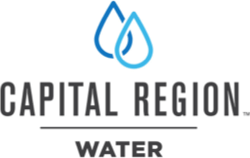BOIL YOUR WATER BEFORE USING
Hiervan el agua antes de usarla.
Este informe contiene información importante acerca de su agua potable. Haga que alguien lo traduzca para usted, o hable con alguien que lo entienda.
We routinely monitor the conditions in the distribution system. On Monday, March 21, 2022 we experienced a loss of positive water pressure due to a water main break at 1225 Thompson Streetin Harrisburg. A loss of positive water pressure is a signal of conditions that could allow contamination to enter the distribution system through back-flow by back pressure or back-siphonage. As a result, there is an increased chance that the water may contain bacteria that can make you sick.
What should I do?
DO NOT DRINK THE WATER WITHOUT BOILING IT FIRST. Bring all water to a rolling boil, let it boil for one minute, and let it cool before using; or use bottled water. You should use boiled or bottled water for drinking, making ice, washing dishes, brushing teeth, and food preparation until further notice.
Inadequately treated water may contain disease-causing organisms. These organisms include bacteria, viruses, and parasites, which can cause symptoms such as nausea, cramps, diarrhea, and associated headaches.
These symptoms, however, are not caused only by organisms in drinking water, but also by other factors. If you experience any of these symptoms and they persist, you may want to seek medical advice.
People with severely compromised immune systems, infants, and some elderly may be at increased risk. These people should seek advice about drinking water from their health care providers. General guidelines on ways to lessen the risk of infection by microbes are available from EPA’s Safe Drinking Water Hotline at 1 (800) 426‑4791.
We will inform you when all corrective actions have been completed and when you no longer need to boil your water.
For more information, please contact:
Dr. Robert E. Young Water Services Center, 888-510-0606
100 Pine Dr, Harrisburg, PA 17103
Please share this information with all the other people who drink this water, especially those who may not have received this notice directly (for example, people in apartments, nursing homes, schools, and businesses). You can do this by posting this notice in a public place or distributing copies by hand or mail.
This notice is being sent to you by: Capital Region Water, PWS ID#: 7220049 Date distributed: 3/21/2022
